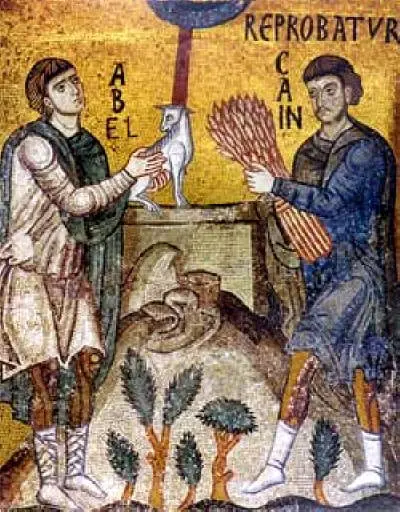Statement of the Holy Synod of the Bulgarian Orthodox Church-Bulgarian Patriarchate
Subject: Constitutional case № 6 of 2021 in connection with Order № 2 of 29.04.2021, by which the Constitutional Court of the Republic of Bulgaria has sent an invitation to the BOC – BP for an opinion on the admitted for mandatory interpretation of Art. 6, para. 2 and Art. 46, para. 1 of the Constitution question: How should the term “sex” be understood in the Constitution, and does it have a meaning different from the biological one?
DEAR PRESIDENT OF THE COURT OF CONSTITUTION,
By decision of St. Synod of the BOC – BP we present to the Constitutional Court this opinion.
The Holy Synod of the BOC-BP has already had occasion to express an official public position on the concept of “gender” and “gender identity” in connection with the notorious Istanbul Convention, which in the course of public and parliamentary debate was subject to constitutional review. the powers of the Constitutional Court under Art. 149, para. 1, item 4 of the Constitution. The Council of Europe Convention on Preventing and Combating Violence against Women and Domestic Violence has been declared unconstitutional by Decision № 13/2018 under Code of Civil Procedure. № 3/2018
Despite the fact that in the present constitutional case a mandatory interpretation by the Constitutional Court of the term “sex” under Art. 149, para. 1, item 1 of the Constitution, in essence the issue comes down again to how the term “gender” should be understood. The Constitutional Court answered this question in its reasons in Decision № 13 of 2018, namely that the biological explanation of the term “sex” is unique.
The latter was a cause of spiritual satisfaction and joy for Orthodox Christians and the majority of Bulgarian citizens.
The question that has been asked about the concept of “gender” goes beyond legal reasoning and affects the foundation of humanity – the biological nature of man and his spiritual significance.
We are convinced that the issues of gender, family, upbringing of children in modern society are issues of strategic importance not only for the national and constitutional identity of Bulgaria, but also for the preservation and future of the human race.
Our position on the concept of “gender”, “gender identity”, “social gender” and others of this semantic unity, is expressed in the opinion of St. Synod, signed by His Holiness the Bulgarian Patriarch Neophyte and presented on December 4, 2018 in Brussels at the initiative of the European Commission and chaired by the Commissioner for Justice, Consumer Rights and Gender Equality Vera Yurova, conference on “Ending Violence Against Women – Balance Sheet and Next Steps”
The position of the BOC-BP was supported and came out as a common position of the Committee of Representatives of the Orthodox Churches in the European Union (CROCEU). In this sense, the understanding of the concept of “gender” and “gender identity” is common Orthodox, not just the BOC – BP.
Representatives of the BOC – BP at this international forum, when asked questions, in their answers presented the main arguments of the Decision of the Constitutional Court and expressed the position that Decision № 13 of 2018 of the Constitutional Court, in whose reasons the term “sex” is interpreted, is part of the national and constitutional identity of Bulgaria within the meaning of Art. 4 (2) of the Treaty on European Union, according to which the European Union respects the equality of the Member States before the Treaties, as well as their national identity, inherent in their basic political and constitutional structures.
The practice of the Constitutional Court regarding the clear and unambiguous concepts “gender” and “marriage” in Art. 6, para. 2 and Art. 46, para. 1 of the Constitution is uncontroversial.
St. The Synod does not find it necessary on this occasion to reproduce the reasons for decision № 13 of 2018 on c.d. № 3/2018, as well as Decision № 14 / 10.11. 1992 under c.d. № 14/1992, as they are publicly known, commented on and reproduced by various representatives of the legal community.
We are convinced that the Constitutional Court, as before, will invariably follow its practice and will comply in the present case with the interpretation in Decision № 13 of 2018 of the term “gender” made on the occasion of the Istanbul Convention. A new understanding of the CC on the concept of “gender” would compromise the concept of “constitutional identity” and jeopardize predictability and legal certainty. Adding content to the concept of “sex”, different from its biological understanding, would “constitutionalize” a new concept incompatible with the Bulgarian social order, unknown in our national legal system, and would promote ideas incompatible with ancient moral values and the faith of the Holy Orthodox church, and the Eastern Orthodox faith is part of the national and constitutional identity of Bulgaria. On the other hand, a new understanding of the term “gender” would mean the introduction of a new discriminatory criterion in Art. 6, para. 2 of the Constitution – a sex different from the biological one.
On this occasion, we will only recall and further develop our understanding of the concept of “sex” within the meaning of Art. 6, para. 2 and in connection with the understanding of marriage as a union between a man and a woman within the meaning of Art. 46 of the Constitution. In short, our opinion is as follows:
For St. The Synod is an unchanging biblical truth: “And God created man in his own image, in the image of God created he him; man and woman created them ”(Genesis 1:27),“ Be fruitful and multiply ”(Gen. 1:28). From the very beginning of the creation of man by his Creator – God, we observe the division of two sexes – male and female, and the very word sex means “half”. This is a quality set by God. It is a prerequisite for the emergence of the family as a union of man and woman, which is consecrated in the Holy Sacrament of Marriage and whose goal is the mutual salvation and sanctification of believers man and woman through spiritual feat in Christ and in the creation and upbringing of children. For the Orthodox Church, marriage is a gracious union between a man and a woman, because God has established a law: “Therefore shall a man leave his father and his mother, and shall cleave unto his wife; and they shall both be one flesh ”(Gen. 2:24). That is why the Apostle Paul says of Marriage, “This mystery is great” (Ephesians 5:32). It is most important to protect the family, because the demonic forces fall on the Divine union of love. New ideologies about the existence of sex, beyond the biological, try above all to separate man from God.
Man as a man or a woman is a creation of God and is not a matter of personal choice. Just as we cannot choose our parents, so we cannot choose our gender – it is our natural characteristic, which is subject to sanctification in the Church, and which accompanies us until the end of our earthly days. For us Christians, the existence of biological sex by birth is not a limitation, but a real opportunity for the manifestation and realization of the human person in communion with others. Throughout the two-thousand-year-old Orthodox Tradition, both man and woman have always had their natural, God-ordained place in Christian society. It is no coincidence that according to the canonical (internal) law of the Church the division into two sexes (male and female) is a natural fact, which the whole internal legal order in the Church takes into account (see, for example, 62 of the Fifth Sixth Ecumenical Council – 691). which forbids men to dress like women, and vice versa).
God’s grace in the Church does not replace the natural properties, but sanctifies them, enables them to be revealed and realized in fullness. Only in the Holy Church do man and woman receive their true, deserved place and are realized as persons in gracious communion with each other and with God. Such is the constant centuries-old teaching of the Holy Orthodox Church, but it also says the common sense of the vast majority of Bulgarian society, as well as the entire state-legal and historical tradition in Bulgaria from the founding of the country to the present day. In conclusion, it should be noted that asking such a question today shows to what extent sin and vice have affected human consciousness, so that it raises cases that in the recent past would have been impossible, unthinkable and unimaginable. We must not allow unnatural thinking to replace obvious truths, as well as reality itself, because that would be detrimental to our people and our country.
Finally, we will allow ourselves to recall the writings of one of the greatest civil lawyers in Bulgaria and former Chairman of the Constitutional Court – Prof. Zhivko Stalev in his work “The normative force of the factual”, which contains a lawful and factually justified response to the question asked for interpretation by the Constitutional Court.
Prof. Stalev writes the following: “There are three main groups of public relations that are constantly present in the matter regulated by law from its inception to the present day. These are the relations of family, possession and hierarchy (of power and subordination). They are intended by law, not created, because they are also characteristic of the period without law, in which man has lived during the predominant period of his existence (§ 6, note 1). They have biological support in three instincts: sexual, nutritional and coexistence, which still determine human behavior. For 2,500,000 years, the predisposition to them can be considered genetically programmed, ie. congenital. This explains their constant presence among the matter regulated by law since law has existed. In this sense, they are natural (naturally given), ineradicable and eternal companions of man as long as he exists as a species. Only the regulation that the law gives to these relations can be variable, but not their existence. The attempt to repeal it is a utopian illusion (§ 2, note 2) ”.
As we wish the beneficent work of the constitutional judges, we invoke God’s blessing on you and remain your intercessor in Christ,
CHAIRMAN OF ST. SYNOD
PATRIARCH OF BULGARIA
+ NEOFIT







